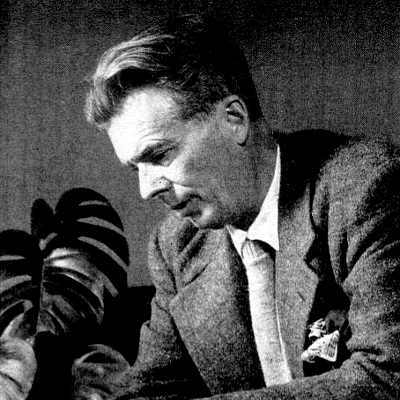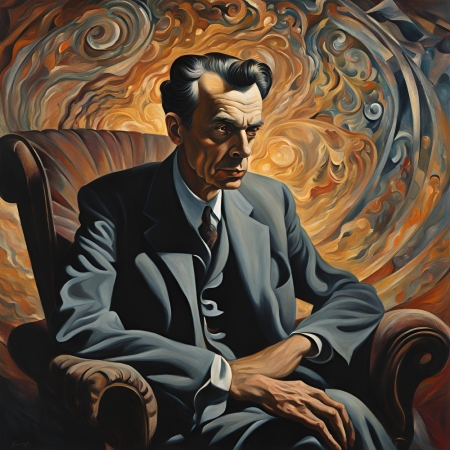
Aldus Huxley, English author (primarily fiction) and explorer of Altered States of Consciousness… In his book: The Doors of Perception, Huxley chronicles his experiences with mescaline. A plant medicine extracted from the Peyote cactus.
As a writer of stories and poems (as well as a philosopher), his descriptions have a clarity and reveal the profound insights he gained about: perception, reality and the nature of consciousness itself.
The Reducing Value
Aldus Huxley used the metaphor of the brain as a “reducing valve”.
From a neurocognitive perspective… the brain acts as a highly selective filter. This selective attention mechanism allows us to prioritize certain stimuli over others.
The neural networks within the brain are responsible for extracting specific features from the sensory input… enabling us to identify and interpret objects, scenes and events in the world.
Our sensory inputs are not the sole determining factor of our perception. Our expectations, knowledge and contextual information all shape how we interpret sensory data. This can lead to perceptual biases and illusions (or Maya), as our brains often attempt to impose meaning and structure on ambiguous or incomplete information.
Huxley believed that his experiment temporarily bypassed the brain’s ‘reducing valve’… Allowing him to experience a more direct and unfiltered perception of reality. This experience led him to profound insights about consciousness, perception, and the nature of reality.
“The mystical experience is doubly valuable; it is valuable because it gives the experiencer a better understanding of himself and the world and because it may help him to lead a less self-centered and more creative life.” Aldus Huxley
Opening the Valve – Profound Transformations in Perception
Colours became more vibrant and saturated… as if each hue was radiating its own unique light. Sounds took on a new depth and complexity… becoming more melodious and harmonious. Even ordinary objects seemed to transform before his eyes… taking on unexpected shapes and forms.
Painting a pictures of the world that is both familiar and yet utterly strange.
Huxley described a sense of interconnectedness and unity with the Universe… As if all things were part of a harmonious whole.
And a space where time seems to lose its meaning… moments stretching out infinitely or contracting into fleeting instants.
Huxley suggests that our senses do not provide a complete or accurate picture of reality.
Huxley believed that true reality lies beyond the ego.
Suggesting that we can transcend our egoic limitations and experience a deeper sense of interconnectedness with the Universe. Leading to a profound shift in perspective and a deeper understanding of the nature of reality.
Aldus Huxley & the Doors of Extended Influence
“If the doors of perception were cleansed every thing would appear to man as it is, Infinite.” William Blake
Just as Huxley was inspired by William Blake for his ‘The Doors of Perception’ book… His follow up essay ‘Heaven and Hell’ was inspired by Blakes work ‘The Marriage of Heaven and Hell’.
The Doors, Jim Morrison’s rock band’s name was inspired by the book.
Timothy Leary read ‘The Doors of Perception’ after returning from Mexico in 1960 (after his first psilocybin mushrooms experience). Huxley and Leary even worked together for a short time.
And a whole generation of people in the 1960’s and 70’s were inspired by them… and beyond.

Huxley was critical of Western culture’s emphasis on materialism… and its overall neglect of spiritual values.
The publication of ‘The Doors of Perception’ caused polarized reactions. It’s conclusions, that psychedelics could be used for mystical insight is still a controversial topic… Today, the evidence shows humans have been doing exactly this for tens of thousands of years.

